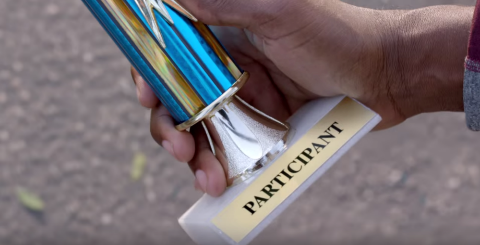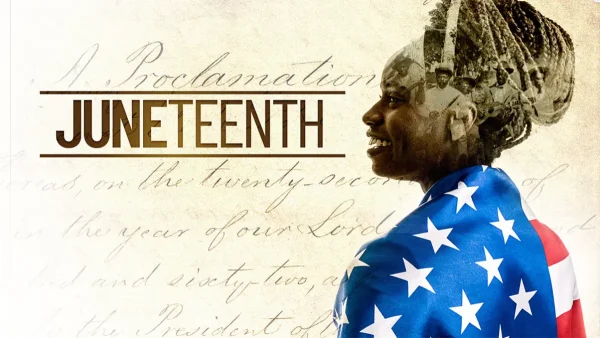Not everyone is a winner

Sitting in his room, senior Mike Kadair sighs as he gazes at his collection of participation trophies. He thinks about how they aren’t especially important to him because they aren’t “real” trophies. Mike isn’t alone.
Young people all over the U.S. play sports or participate in activities of all types. Commonly, they receive an award for merely having a pulse on the sidelines. Win or lose, everyone gets a trophy, medal, certificate, or some form of an award. That’s great, right? Now everyone feels included. After all, it’s all about showing up.
Wrong.
According to author Betty Berdan of the New York Times, “Trophies used to be awarded only to winners, but are now little more than party favors: reminders of an experience, not tokens of true achievement.” Berdan is right. Everyone gets a prize, which diminishes their value for true champions.

Sawyer Krause, senior, shows off his participation awards here, but hides them under his bed because they don’t mean much.
Carter Verderico, WJ sophomore, noted, “It’s a nice thought to include everyone, but no one wants to have the same trophy sitting in their room as someone who lost.” Many other students feel this way, too. Like Mike Kadair, they have a pile of essentially meaningless trophies in their rooms collecting dust. While this trend may be great for companies that manufacture trophies, it is not good for America’s youth as they prepare for the real world.
Fred Bowen of The Washington Post has written about this issue and the other ways that young athletes could be awarded. Receiving a game ball after making a terrific play is definitely a great alternative. Young people need words of encouragement to continue playing, not an award for sitting on the bench.
Junior Ari Buda explained that “giving everyone a trophy when they are young teaches kids that they are entitled to things as they get older.”
In life, there is limited room on the winners’ podium. By handing out trophies to everyone, children are given a false sense of reality. Preston Rice, a senior, said, “In reality there are winners and losers, and we can’t keep coddling the younger generations.”
Losing and not receiving a trophy is actually a great teaching opportunity, which is described by Chicago Tribune writer Danielle Braff. People can learn from mistakes and, if children don’t learn that from a young age, it will be hard for them to accept losing as part of the process of becoming a winner later in life.
Senior volleyball player Virginia Natale believes that “participation awards promote a culture of over sensitivity and sheltering.” They promote complacency because children don’t push themselves to be better, rather they become content with not winning.
In the end, young people will still enjoy sports and activities without a participation award. It’s about the effort put forth to become better and learning from the experience.


![It is in giving that we receive [Opinion]](https://thepioneerwjhs.com/wp-content/uploads/2024/03/IMG_6538-600x252.jpeg)


![War in Ukraine horrifies school community [Opinion]](https://thepioneerwjhs.com/wp-content/uploads/2022/03/9C7A948F-24DE-4E28-9E55-8707ADBC38B9-475x267.jpeg)




